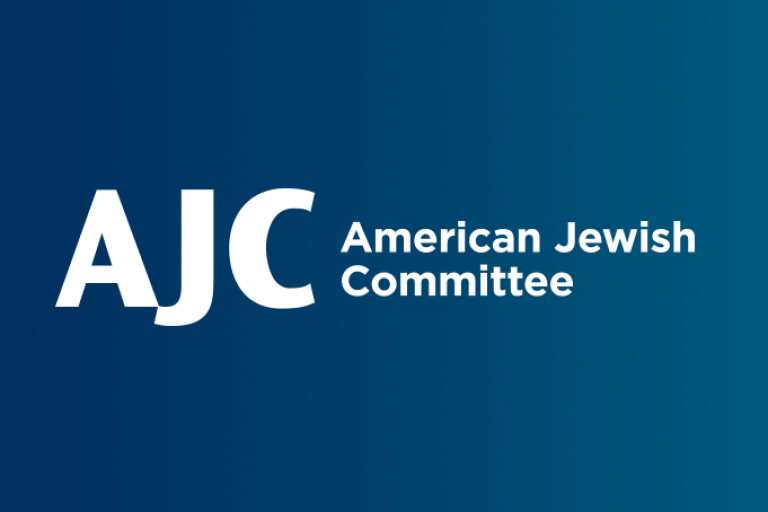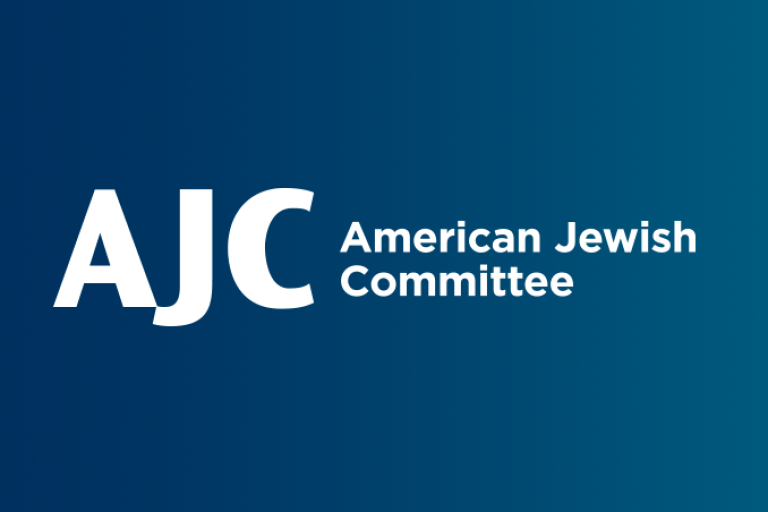January 9, 2020 — Washington, D.C.
House Homeland Security Subcommittee on Intelligence and Counterterrorism
Briefing on Antisemitic Domestic Terrorism and the Government’s Response
Remarks of
Jason Isaacson
Chief Policy and Political Affairs Officer
American Jewish Committee
January 9, 2020
Mr. Chairman, [Ranking Member Walker], Members of the Subcommittee, Members of the Bipartisan Taskforce on Antisemitism, distinguished guests, colleagues and friends. Thank you for convening today’s briefing, and for scheduling next week’s Subcommittee hearing, and thank you for offering AJC this opportunity to present brief remarks on the recent surge in antisemitism and appropriate government responses.
With sickening regularity, as you are well aware, individuals filled with hate and ignorance are physically and verbally assaulting Jews in New York and its suburbs, defacing Jewish sites, and introducing an unprecedented level of fear into a metropolitan region that, next to Tel Aviv, has the world’s largest Jewish community – some 15 percent of all Jews alive today.
I need not catalogue for this Subcommittee and for Members of the Bipartisan Taskforce the incidents that have occurred in recent weeks – before and after the antisemitic murders at the kosher market in Jersey City last month; before and after the brutal attack in Monsey, New York, on the seventh night of Hanukkah, less than two weeks ago. You know the details. You’re keenly attentive to the anxieties of your constituents. Many of you took part in, directly or vicariously, the “No Hate. No Fear” solidarity march and rally in New York last Sunday – and I and my AJC colleagues wish to commend and express our appreciation to you for that – or you joined in the “Jewish and Proud” solidarity day that we launched on Monday.
Members of Congress know that what’s been happening in the New York area hasn’t been happening in isolation. There are hate crimes against Jews in other states – reported and, as we have come to understand, often unreported. And you recognize that what our community and this society is witnessing is not merely an American phenomenon – that the rise in frequency and severity of antisemitic incidents in the United States is set against the backdrop of years in which truly horrifying attacks against Jews have occurred in major European cities…and that backdrop in itself must be placed within the broad context of discrimination and persecution of Jews over millennia.
There is, in our time, a global rise in antisemitic rhetoric on social media, on school campuses, in buses and trams and subway cars, in the mouths of politicians, spray-painted on synagogue and cemetery walls, and on the streets. And, as poisonous words impel those susceptible to action, there is a global rise in antisemitic violence, as well – violence that, in its motivation and intent, may be fairly defined as terrorism.
The question that will be before the Subcommittee in its January 15th hearing on “Confronting the Rise in Antisemitic Domestic Terrorism” is essentially this: In light of what Congresswoman Lowey, who represents Monsey, and AJC CEO David Harris described in their New York Times column last week as an “epidemic” of antisemitism, what can government do to treat this age-old, pernicious, sometimes fatal, social disease, and halt its spread?
On the basis of AJC’s work in this field over the years – including our Survey of American Jews on Antisemitism in America, released three months ago; our role in the drafting of the Working Definition of Antisemitism more than a decade ago, a text since adopted by the International Holocaust Remembrance Alliance; the ongoing activity of, among others, my colleague Rabbi Andrew Baker, the OSCE’s point person on antisemitism since 2009; and our multiple partnerships with municipal, state and federal officials, including distinguished Members of Congress, who are devoted to combating hate and protecting our community from harm – I would like to offer the following recommendations:
First, there is a clear and urgent need for additional resources for community protection – building on the 50 percent increase in DHS security grants for nonprofits provided by Congress in Fiscal Year 2020 appropriations. In that context, your statement last week, Chairman Rose, sent a powerful signal, when you declared that “All levels of government need to rise to the challenge, ensure the safety and security of the Jewish community, and do everything in our power to combat the disgusting hate and pervasive anti-Semitism.” Senator Schumer’s proposal last week to quadruple the funding for the DHS security grants program merits strong support.
Second, we need to close the vast gaps in reporting on hate crimes across America. For more than two decades, under the 1990 Hate Crimes Statistics Act, local, state, tribal and federal law enforcement agencies have voluntarily submitted hate crimes data to the FBI. As the incidence of hate crimes has risen, inaccurate, incomplete, and simply absent hate crime reporting has stymied efforts to fully comprehend and formulate responses to this social pathology. More than 80 cities of over 100,000 residents report zero incidents or do not report hate crimes at all to the FBI. In response, AJC urges support for H.R.3545, the so-called NO HATE Act, introduced by Representatives Don Beyer and Pete Olson, which would link hate crime reporting to Department of Justice training grants and other resources.
Third – and this response takes on particular urgency at the state and local levels – there needs to be greater consistency in the prosecution of hate crimes. As the eminent Dr. Ahmed Shaheed, the UN Special Rapporteur on Freedom of Religion or Belief, who submitted a groundbreaking study on global antisemitism to the UN General Assembly last fall, told me and my AJC colleagues in Washington just last night, there must be “a consistent expectation by perpetrators that they will be prosecuted.” In this context, I wish to take note of a letter AJC sent today to Governor Cuomo of New York urging changes in the state’s just-enacted bail reform law, which have the perverse effect of favoring perpetrators over victims of antisemitic hate crimes.
Fourth, we clearly need to better understand and more directly confront the sources of, the contributors to, the epidemic we have been discussing. Antisemitism, as you know, has many sources and enablers – religious, political, cultural – many of them deep-seated, immune to truth, and beyond the reach of government authority. But government can act, can enlighten, can expose the lies of the haters. With diligent effort, hate-crime perpetrators can be rehabilitated – during and following incarceration. Social media platforms can be pressed to much more rigorously, with far greater research and resources, enforce community standards and make online antisemitism and other bigotries rare, rather than commonplace. Schools, particularly in areas where hate crime has spiked, can rise to the challenge; in this regard, I want to commend the New York City Department of Education for introducing curricula on the historical context and current effects of antisemitism in middle and high schools in Williamsburg, Crown Heights, and Borough Park, three neighborhoods with large Jewish populations. This initiative need not be confined to Brooklyn or to the New York metropolitan region.
Finally, government…government officials individually and institutionally…can respond to hate – hate suffered by the Jewish community, and hate directed at other communities, as well – by joining with civil society leaders in modeling socially conscious, mutually respectful, behavior. In an era when disparaging your neighbor draws a big crowd, while being kind doesn’t make the cut, it may sound wistful and naïve to promote civility, to appeal to decency.
But America needs to re-install those social guardrails. We need – we all need – to send the message that antisemitism in any form is unacceptable, that there is no room in these United States for bigotry or prejudice.
Thank you.


